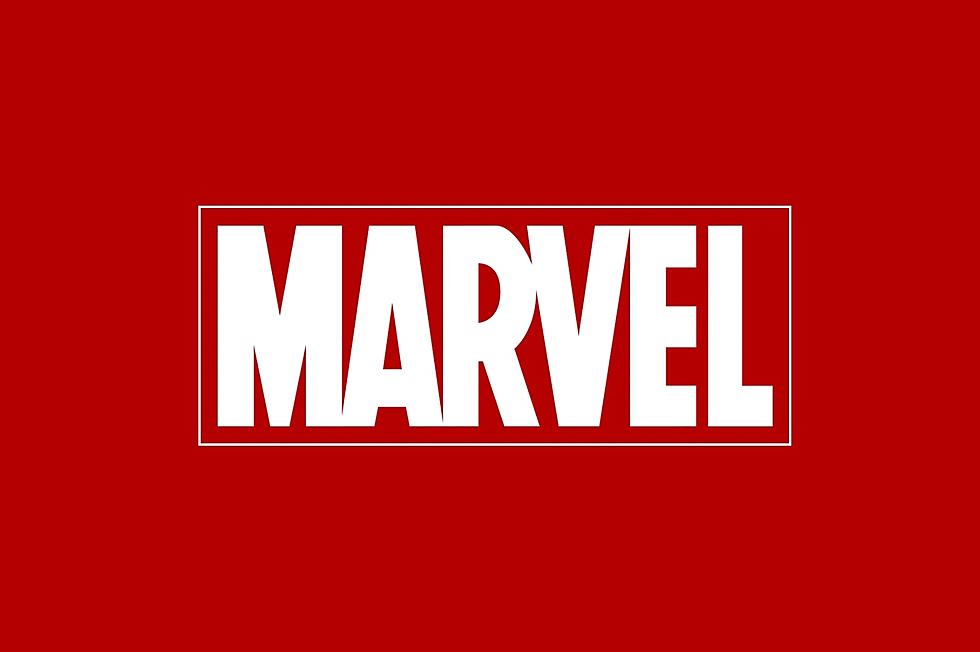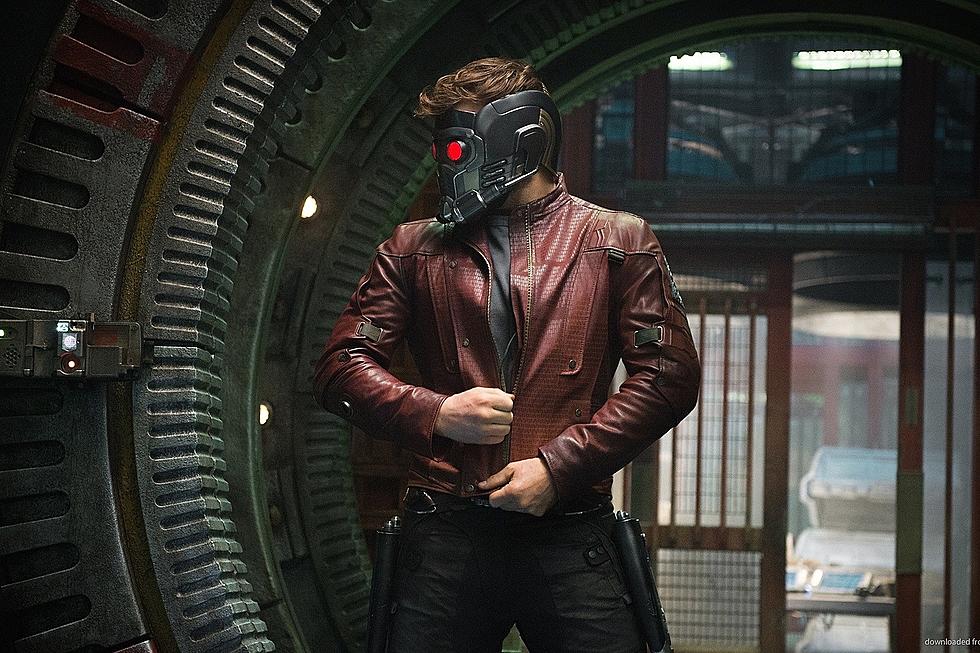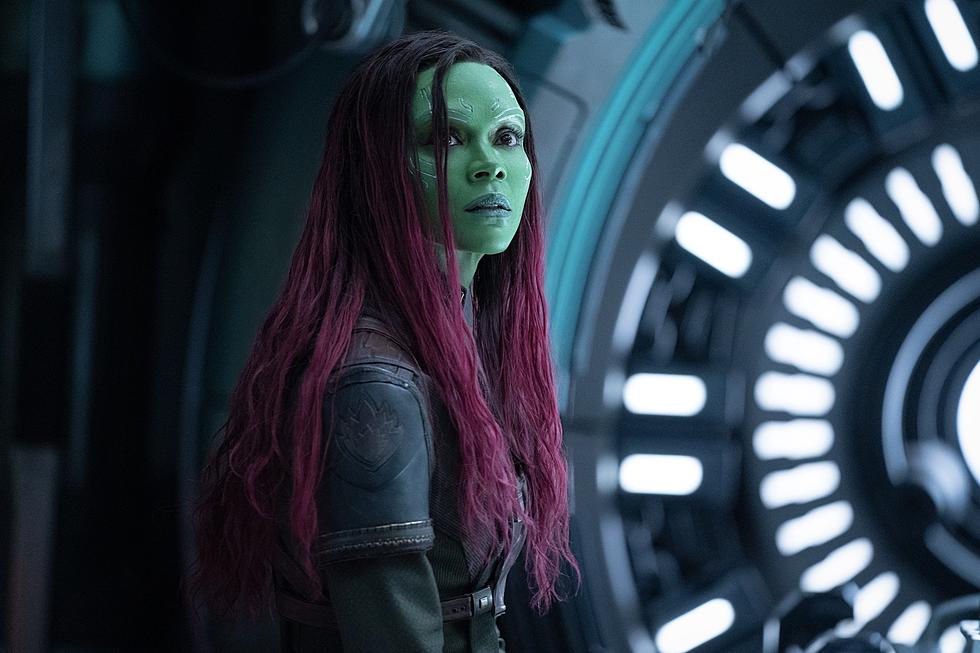
‘Guardians of the Galaxy': Is This the Movie Marvel Should Really Make Next?
Although you can argue about the merits of each individual movie, it's safe to say that Marvel Studios has not stumbled in its six-movie march to the very top echelons of box office history. But the company's newest franchise - 'Guardians of the Galaxy' - is a puzzling choice that could be its biggest gamble yet.
With 'The Avengers' becoming the third biggest box office success of all time this summer, Marvel completed "Phase One" of its unprecedented filmmaking strategy with success that had to have been beyond the wildest dreams of the company's brain trust. The four-year march to the top began with the studio taking control of its own destiny -- and those properties not licensed to other studios -- and in 2008 and releasing 'Iron Man,' a film starring a supposedly washed-up actor, directed by a then B-level filmmaker, and based on a character that was considered a Marvel second-stringer (although we never quite got that ourselves, frankly -- Iron Man was always cool with us).
The film, of course, was a smash, and with its first standalone cinematic gambit justified, Marvel began to unveil the contours of its master plan: a shared universe that interlinked most of its films in the cinematic equivalent of the shared universe of the comic books. First there was 'The Incredible Hulk,' then 'Iron Man 2,' then 'Thor' and 'Captain America' and finally 'The Avengers'...it was bold, it was risky -- and it worked like hell.
When Marvel architect Kevin Feige officially unveiled "Phase Two" at Comic-Con two weeks ago, the trajectory seemed rather safe at first: 'Iron Man 3,' 'Thor: The Dark World' and 'Captain America: The Winter Soldier' were all foregone conclusions. But it was that fourth slot (the studio's second film for 2014) that was the source of mystery and rumor (and leaked intel) for weeks, culminating in Feige officially announcing...'Guardians of the Galaxy.'
Wait...what?
In mainstream terms, 'Guardians of the Galaxy' is possibly the most obscure pick Marvel could have made for a major feature film. While the wisdom of bringing characters like Captain America and Thor was questioned before those movies came out, each of them had decades of comics behind them, not to mention appearances in animated shows (we'll discount their very rare live-action forays before now). Even for people who are not diehard comics fans, those characters did carry some sort of cultural iconography and recognition.
'GOTG,' on the other hand, carries little of the same. We did an excellent recap of their history here, but it's safe to say that while the Guardians have popped up from time to time in various Marvel storylines, their own books have never been successful enough to last very long -- which means that they don't have nearly the cultural cache of a Cap or Iron Man.
Also, as configured, the Guardians have got to be the hardest sell Marvel has yet to come up with. 'Thor' was probably the biggest challenge so far, as it introduced cosmic elements into a universe that the 'Iron Man' and 'Hulk' movies had kept firmly planted on Earth. But the Asgardians resembled humans at least, and the film's truly alien menace -- the Frost Giants -- were not front and center. With 'GOTG,' Feige and co. are going to ask audiences to buy one character who's a sentient tree and another who is a walking, talking raccoon (whose buddy is a talking walrus). The other three -- Drax, Star-Lord and Gamora -- don't exactly take off their costumes and turn into Robert Downey Jr. or Chris Evans either.
Why did Marvel pick 'GOTG' for the screen? The current theory seems to be that the film's villain will be Thanos, who was glimpsed at the end of 'The Avengers' but apparently needs more set-up before he can go head-to-head with the team in 'The Avengers 2.' But is that really necessary? Couldn't some clever exposition -- and maybe a cameo from the Guardians in a flashback -- take care of that?
We'd like to think so, and we'd also like to think that there are several other characters that Marvel could have chosen for its fourth film of "Phase Two." None of them are superstars like Spider-Man or Iron Man, but they're certainly well-known among Marvel fans and might be easier to swallow for regular moviegoers. They are:
Dr. Strange: The Sorceror Supreme has been working with the Avengers in the comic books for years. His own experiences with magic, powerful artifacts and the wider Marvel cosmos would let him fit smoothly into the post-'Avengers' world while also opening it up even more.
Black Panther: The first African-American superhero, Black Panther is the name given to T'Challa, ruler of the fictional country Wakanda and possessor of abilities and resources both supernatural and technological. T'Challa eventually did join the Avengers in the books -- wouldn't a movie introducing him be a perfect segue to 'Avengers 2'?
Sub-Mariner: Namor, lord of Atlantis, was one of the first comic book superheroes and has been associated with Marvel since before the company even went under that name. Universal announced a Sub-Mariner film in 2006, but the rights have since reverted back to Marvel. Dealing with Atlantis brings a wholly fantasy element into what has so far been a nominally sci-fi universe, which is perhaps why Marvel has been hesitant.
We'd love to see any of those three guys on the screen, and we know fans who would add Iron Fist to that list as well. We know a Dr. Strange script has been written...could the studio just be unhappy with it? Unhappy enough to table it for a talking raccoon? And is creating the world of Wakanda onscreen really that much more difficult than the space setting of 'GOTG'?
Of course, Marvel could also just have gone with 'Ant-Man' as its next film, which would also provide a lead-in for 'Avengers 2,' or take the super-safe route and make a 'Hulk' standalone movie (which we've outlined our opposition to here). With 'GOTG,' however, the studio is clearly sticking its neck out. Honestly, we're not sure we get it.
But based on Marvel's track record so far...we've also learned to never bet against them.
More From ScreenCrush









